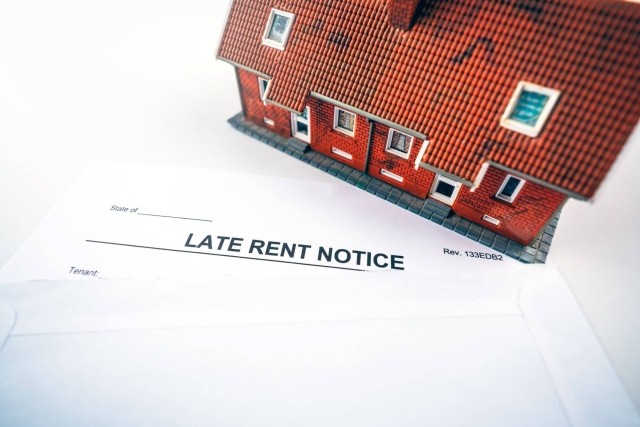Before a tenant signs the lease and moves into your rental, there are a few things you will likely collect from them, including move-in fees like a security deposit, first and last month’s rent, and additional fees for pets, parking, etc. Although not all landlords have the same requirements for move-in fees, it’s very common to require a security deposit before a tenant moves in. This deposit assures the landlord that the tenant will pay rent on time and abide by the lease. If there’s damage to the property or rent left unpaid at the end of the lease, then the security deposit will help cover it.
Some landlords choose to charge a security deposit as well as first month’s rent, with some even tacking on last month’s rent as well. But what’s the purpose of collecting first and last month’s rent up front?
What Is First and Last’s Month Rent Used for?
If a landlord requires a renter to pay first and last month’s rent before move-in day, the renter is essentially providing the funds to pay rent for the first and last month of their lease. When a tenant is ready to move out at the end of their lease, the landlord already has the funds for their last month of rent in hand.
Some landlords feel more comfortable allowing tenants to move in if they have collected enough funds up front. The cost of move-in fees can also vary by situation. For example, if a tenant’s background or credit check comes back and isn’t up to par, but the landlord still chooses to rent to them, they may have a few extra requirements before they can move in. Although it may seem like a win-win to collect last month’s rent up front in addition to a security deposit and first month’s rent, there are pros and cons to this requirement.
Pros of Collecting Last Month’s Rent Up Front
If you choose to collect first and last month’s rent up front, you will likely have:
Financially reliable tenants
If a tenant has the ability to pay a security deposit as well as first and last month’s rent up front, they are likely financially stable and can afford to do so. This decreases the chances of late or missed rent payments later on. If you're looking for other ways to determine the reliability of a tenant, make sure to conduct a thorough screening before selecting them as a renter. You will be able to see past evictions, credit, criminal history, and other important factors in your selection process.
Additional funds and financial protection
It never hurts to have additional cash up front when renting to a new tenant. If the amount you charge for a security deposit is equal to one month’s rent, you may find that some tenants will rely on the security deposit to pay their last month’s rent. The issue with this is that the security deposit then wouldn’t be able to cover potential damage to the unit. By collecting last month’s rent on top of the security deposit, you will have a little extra cushion to cover transition costs.
Cons of Collecting Last Month’s Rent Up Front
With every pro comes a con and collecting last month’s rent up front has a few to consider.
Issues with rent increases
If a tenant resigns their lease, then last month’s rent should be put toward their next lease term and not used during the current term. If you charge a yearly rent increase, then the deposit you collected for last month’s rent will no longer cover the rent amount. To deal with this scenario, you could charge your tenant the difference in last month’s rent at rent increase time. But if you don’t ask for the extra money each year to cover the new cost of last month’s rent (if they continue to re-sign the lease), you will end up losing money by charging for the last month up front.
Decreased number of eligible renters
You may find that not every tenant has enough money saved up, or is willing, to pay first month’s rent, a security deposit, and last month’s rent. Because of this, you’re limiting your market. Even if the tenant is willing and able to pay all three move-in costs, it’s possible that your competition doesn’t charge last month’s rent. If this is the case, you may have a more difficult time renting your unit.
Limited uses
Calling the deposit “last month’s rent” in the lease agreement limits what you can do with those funds. For example, if there were damages to your unit that exceeded what the security deposit covers, you wouldn’t be able to use last month’s rent to pay for the damages. That money is only allowed to be applied to the cost of last month’s rent.
The Solution: Collect a Larger Security Deposit Instead
The purpose of a security deposit is to ensure your renters pay rent on time, leave the property in good condition, and abide by the terms of their lease. This refundable deposit can be returned to the tenant in its entirety if they don’t break the lease, damage the unit, or leave any rent unpaid. Because of these terms, tenants are more likely to hold up their end of the deal in order to get their deposit back in full.
Before you make any decisions, check the security deposit limits for your state. Even if your state doesn’t have any limits, you only need to charge what the market will bear. If you charge too much for a security deposit, you may lose out to your competition who offers a better deal.
Other states, however, limit the amount a landlord can charge for a security deposit, such as one or one-and-a-half months’ rent. If your state allows you to charge more than one month’s rent as a security deposit, this should serve you better than collecting last month’s rent. If the tenant doesn’t pay the last month of rent at the end of the lease, you can use the extra money you collected for the security deposit to cover that. The security deposit can also still be used to cover the costs of any damages to the unit.
The Choice Is Yours
Although collecting first and last month’s rent is always an option, it may be in your best interest to collect the extra funds in the form of a security deposit (if your state laws allow). A security deposit can cover the cost of unpaid rent as well as damages, whereas last month’s rent can only be used to pay the cost of rent for the last month in the lease. When deciding how much to charge for a security deposit, remember to check your local laws for potential limits and compare your cost to the competitors in your area.











